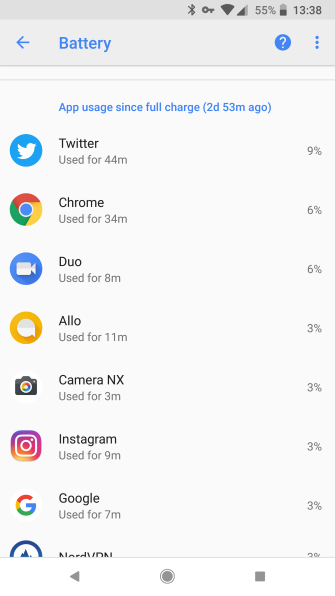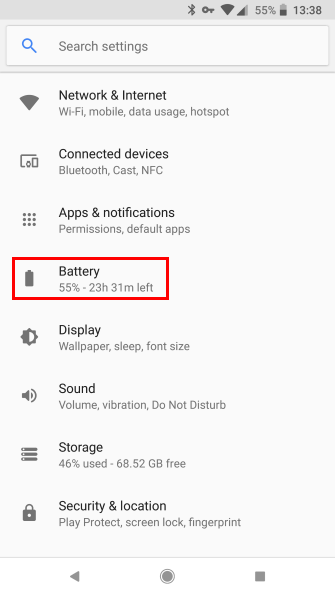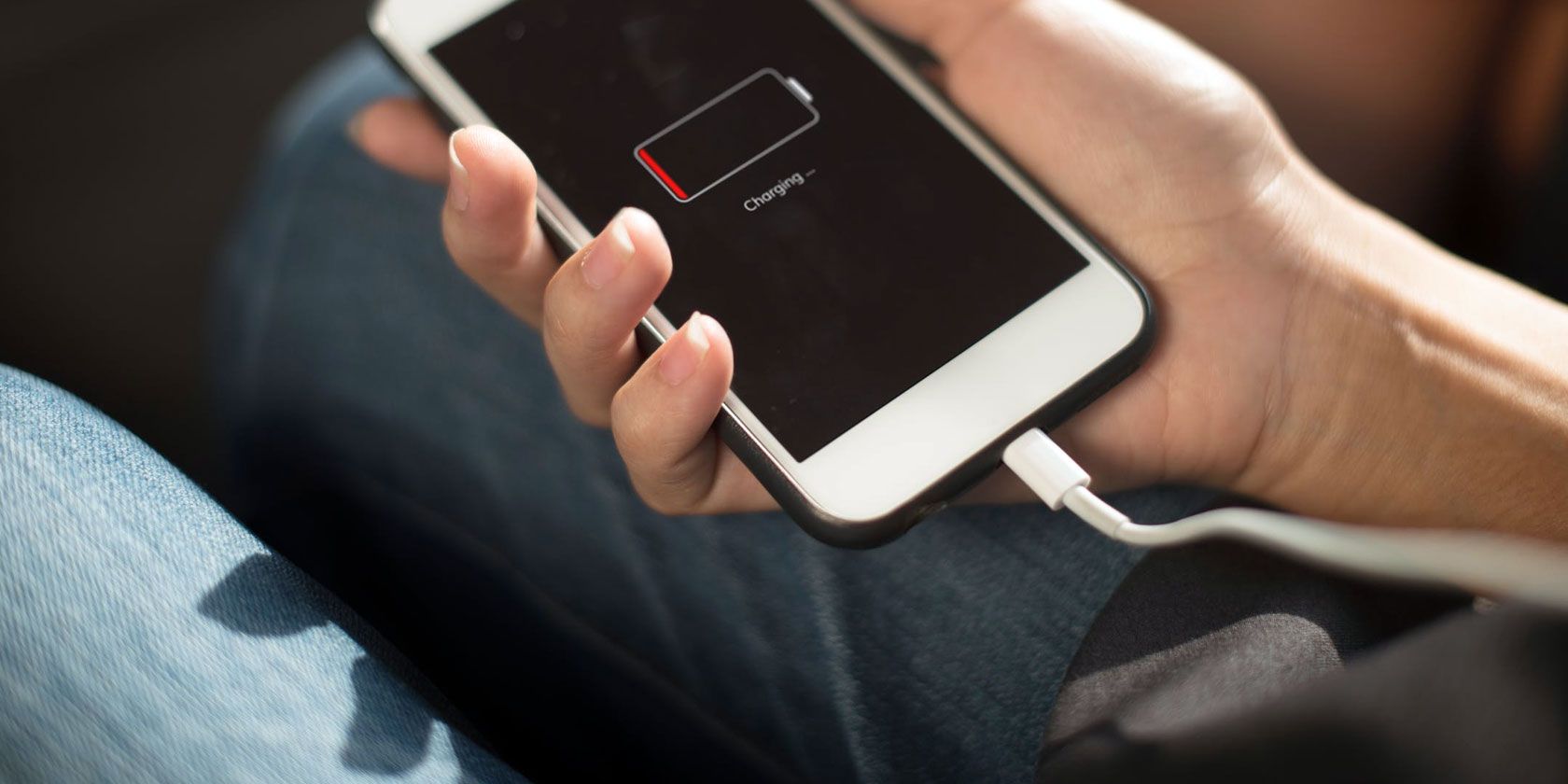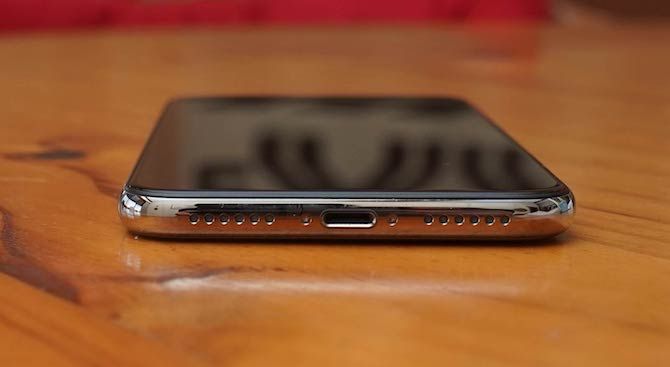Is your phone charging slow? Your smartphone can do a whole lot---but not if the battery's exhausted. Unfortunately, as your phone gets older, it might take longer to charge.
Let's talk about how mobile device charging works and the different charging methods available for current-generation phones. We'll also see why older phones might require more time to charge and what you can do about it.
How Rechargeable Batteries Work
Every mobile phone has a battery. For the most part, each battery delivers power the same way.
A cell battery contains two electrodes (one positive and one negative) and an electrolyte. Through usage, ions form in the electrodes, which drives a flow of electronics to your battery's negative outer terminal, thereby giving off a charge.
In non-rechargeable batteries, these chemical reactions only occur one time. With rechargeable lithium-ion batteries, like the ones found in phones, the chemical reactions are "reversible." Thus, recharging allows the cell to absorb power.
In broad terms, there are two ways to charge your smartphones: wired and wirelessly. There are pros and cons for both.
Pros and Cons of Wired Charging
Like other consumer electronics, smartphones have always shipped with cables for charging purposes. For a long time, these cables didn't change.
For almost a decade, non-Apple devices have shipped with USB cables that have supported the USB 3.0 architecture. By contrast, since 2012, Apple devices have used Lightning, a proprietary computer bus and power connector.
"Fast Charging" technology has increased wired charging speeds considerably in recent years. This type of technology typically requires a newer USB Type-C connection. Fast charging specifications differ by manufacturer and device. For example, using a 45 Watt charger you can get your Samsung Galaxy S20 Ultra up to 70 percent battery in 30 minutes.
Pros of Wired Charging
The most significant reason to stick with wired charging technology, at least for now, is efficiency. Plus it's relatively universal, so if you forget to pack one when travelling then it's likely your accommodation will have a spare.
Cons of Wired Charging
Not surprisingly, cables are the biggest reason to ditch wired charging technology. Cables are annoying and can become worn over time.
Pros and Cons of Wireless Charging
This brings us to an increasingly popular form of phone charging: wireless. There are many benefits to using wireless charging, although it does come with some drawbacks.
Pros of Wireless Charging
With wireless charging, you no longer have to worry about finding a cable. Instead, you just set your phone on a stationary charging pad---no fiddling around plugging a cable into your phone.
Convenience is another reason consumers are embracing wireless charging. Many of the charging pads on the market today allow you to charge multiple devices at the same time. They are also platform agnostic, meaning the same wireless charger will work for your Android and iOS device.
Cons of Wireless Charging
Wireless charging can be slower and less efficient than wired charging, though of course that depends on what type of charger you buy. However, because most phones can go an entire day between charges, this discrepancy isn't as significant. Just place your phone on the charger before going to bed, and you're good to go.
Wireless chargers also tend to generate some wasted heat, which in very rare cases could lead to your phone overheating. To avoid injury, make sure you only buy certified wireless charging bases. Wireless charging products are also more expensive than wired solutions.
5 Reasons Why Your Phone Is Charging Slowly
Now that you know how battery charging works, it's time to look at what might be slowing down your older phone while charging.
1. Bad Accessories
The most straightforward reason your phone might be charging slower than before might have nothing to do with the phone itself. Instead, you could have a bad cord or adaptor, or weak power source.
USB cables get put through a lot, especially in homes with multiple users and devices. These cables are often dropped, bent, kept in locations where temperatures can vary significantly, and even stepped on. Therefore, before anything else, change the cable and see if that eliminates the problem.
You should also switch out the adaptor and see if that makes a difference. Do you continue to use the same adaptor even after buying a new phone? You should use the newer one.
Ideally, use chargers from reputable companies. The one that came with your phone is the best. If you buy some random unknown brand, you might find that it doesn't charge as quickly as your phone is capable of.
Many people like to charge their mobile devices using a port on their computer. This isn't always an ideal solution, depending on your computer's age and whether other ports on your machine are in use at the same time.
Everything else being equal, you should use a direct source to charge your phone. In other words: use a wall charger whenever possible. And ensure that you are using a safe charger.
2. Port Issues
Your cable isn't the only element that could have problems from daily charging. Your phone's charging port could also suffer some damage. Look at the port for corrosion or obstruction. While this probably isn't the reason it's taking more time to charge your device, you should at least rule it out.
To find the latter, use a flashlight and magnification to look around inside your phone's port. Try to remove any object (lint, dust, etc.) that doesn't belong, being very careful not to cause damage to the port's components.
You can carefully use a plastic toothpick to remove any objects. Using a small, soft brush inside the port is also good.
3. Background Apps
Phones that take forever to charge can also have a hard time keeping a charge when in use. A rogue app, or background apps in general, could be the reason for this.
Both Android and iOS have tools for you to find out what apps are running in the background. For Android-based devices, check out the battery usage menu located at Settings > Battery (or it might be under a section like Device care). On your iPhone, select Battery in the Settings app to see which apps are using the most battery.


Some apps might show high battery usage just because you use them often. Look for apps that have minimal time usage but questionably high battery usage. When you think you've located the nasty app, delete it and see if your battery life and charging speed improves.
4. Aging Battery
If your phone is more than two or three years old, and has had heavy use during that period, it might be time to think about having the battery replaced.
Lithium-ion batteries don't last forever and can only be recharged a limited number of times. Therefore, it could be that the battery itself is what's causing the slow recharging.
While it's rare now, your phone might have a removable back so that you can easily buy a replacement battery and swap it out. However, it's more likely that you'll need to take your phone to a repair shop to ask for more information on replacing the battery in your device.
5. Using the Phone While Charging
Are you the type of person that has to use your smartphone even when it's charging? Perhaps you're the reason the device takes so long to recharge.
Apps such as Facebook are notorious for sapping battery life on phones. Nowhere is this more apparent than when you're attempting to recharge your device while also leaving posts on your social network.
Some phones will struggle to provide power for use and charge at the same time. Put your phone down and let it charge in peace.
How to Fix a Phone That Won't Charge
It shouldn't take a long time to recharge the battery on your phone. If you've noticed it slowing down significantly, there's probably an issue that's easy to resolve. If the tips found in this article haven't helped, consider taking your device to the nearest authorized service center to have an expert take a look.
Struggling to get a charge at all? Here's how to fix an Android phone that won't charge.


